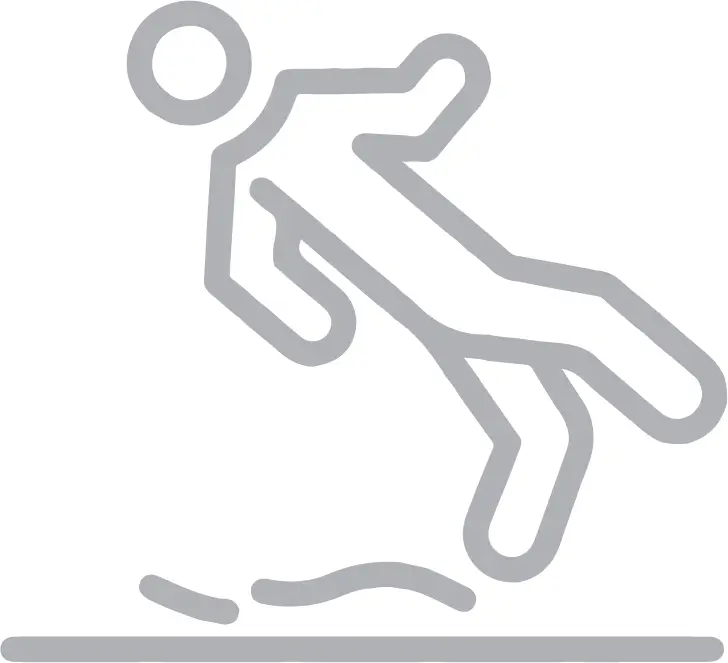Fighting for maximum injury compensation for you and your family
No Fees Until We Win


NJ Personal Injury Lawyers
Call us today for a FREE injury case evaluation. You may be entitled to compensation for your injuries.
CAR ACCIDENTS
Car accidents cause serious injuries, create financial burdens, and require long-term care. Read more: Cherry Hill, Jersey City, Newark.
TRUCK ACCIDENTS
Tractor-trailers are one of the most dangerous vehicles on the road. Rosengard Law Group will help you build a solid case against the negligent truck driver.
Read more: Newark, Jersey City Cherry Hill

CONSTRUCTION ACCIDENTS
Construction site cases can be quite complex because of multiple parties and insurance companies. Our attorneys have the experience needed to win compensation.
PERSONAL INJURY
When the negligent actions of another person have injured you, you have the right to seek justice by filing a compensation claim. Read more: Jersey City, Newark.
BRAIN INJURIES
Traumatic brain injuries can change everything in your life. If you or your loved one has suffered a TBI, we will fight for your right to receive compensation for your losses.

SLIP AND FALL ACCIDENTS
Slip and fall accidents cause injuries, but property owners blame the victim instead of their own negligence. We fight for the compensation you deserve.
MOTORCYCLE ACCIDENTS
Motorcycle accidents cause severe injuries. The responsible party must be held accountable for these life-changing injuries.
WRONGFUL DEATH
The loss of a loved one to a preventable accident is absolutely devastating. Speak with Rosengard Law Group if you’ve lost a loved one due to a preventable accident.
DEFECTIVE PRODUCTS LIABILITY
Manufacturers have an obligation to ensure their products are safe. If a defective product has injured you, you may have the right to sue for compensation.
CLIENT REVIEWS
If you’ve been hurt in an accident you’re on a quest for the best personal injury lawyers. Fighting for the maximum compensation for our client is, and always will be, our number one priority.
Jamie W.
Adam Rosengard is one of the best and most efficient attorneys I have ever worked with. He was responsive, attentive and very easy to talk to. I highly recommend contacting him. He is very knowledgeable and will go the extra mile.
Kamilla M.
As a fellow attorney, I’ve known Adam for several years and would highly recommend him for anyone that has been injured and is looking for an aggressive personal injury attorney that is responsive and very good at what he does.
Matt T.
This is a great law firm that has always been very helpful to me. They know how to handle personal injury cases effectively and professionally and I highly recommend them to anyone seeking legal advice or help. They are the best!
Martina R.
Very professional and compassionate. Staff is helpful and they’re always available to help. I’d recommend Adam Rosengard and his team to anyone.
We help accident victims win maximum compensation
We believe you deserve the maximum financial compensation for your injuries, so we take on the corporations and insurance companies, and fight for these common types of compensation:
Lost Wages and Benefits
This is an economic loss that will cover any wages that you’ve lost due to your injury. Every day that you have not been able to work will be included in this sum.
If you cannot return to work or can only return in a diminished capacity, we’ll also seek future earning losses as part of this compensation.
You may also be entitled to receive compensation for some benefits such as employer contributions to your health insurance, profit sharing, and employer contributions to your retirement account.
Medical Bills
We’ll fight to recover all of the medical costs you have faced due to your injury, which will include the cost of future care, rehabilitation, and any long-term care costs.
We understand that the cost of medical care can be high. We’ll work with your medical care provider to get a realistic cost for your future care to ensure your compensation package is complete.
Related Expenses
You may have suffered personal property damages and out-of-pocket expenses as a result of your injury. Changes to your home or vehicle to accommodate your injuries and fees you paid for services you normally do but currently cannot complete because of the injury will also be included.
Pain and Suffering
Pain and Suffering is a type of non-economic damage. This compensation will differ with each case because every injury is unique.
Attorneys at Rosengard Law Group will pull information from many sources, including your medical records, to show how much your injuries have impacted your life.
Emotional Trauma
Emotional duress is very similar to pain and suffering and will be unique to your case. We may even ask that you speak with a therapist to ensure we document the extent of your emotional trauma.
Loss of Companionship or Consortium
If the injuries you have received have impacted how you interact with your spouse, we may seek damages for loss of companionship. Your spouse and children may also receive loss of consortium compensation.
Punitive Damages
Punitive damages may be awarded if the court believes that the negligent act was done intentionally, with malice, or was the result of an overly reckless act.
You may be entitled to additional forms of compensation. We’ll discuss all forms of compensation that you are entitled to based on your case.
We fight the big insurance companies and corporations, so you can heal and return to what matters most.
Our personal injury lawyers are passionate about fighting for accident victims, so we’re consistently recognized as leaders in personal injury law, winning the most prestigious awards and peer recognition. The personalized and tailored services we provide will prepare us for battle against the insurance companies.
OUR OFFICE LOCATION
We have a very convenient Cherry Hill, NJ location to serve you.
Rosengard Law Group
496 Kings Highway North
Suite 220B
Cherry Hill, NJ 08034
Phone: 856-284-6446


